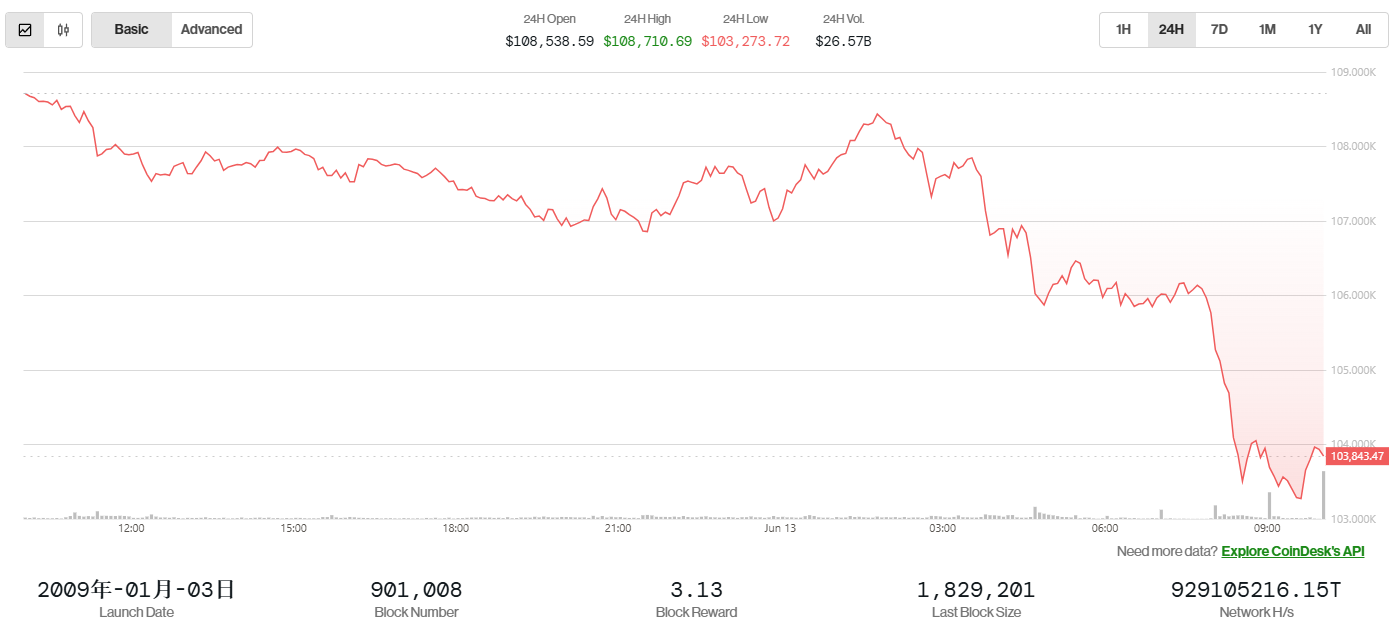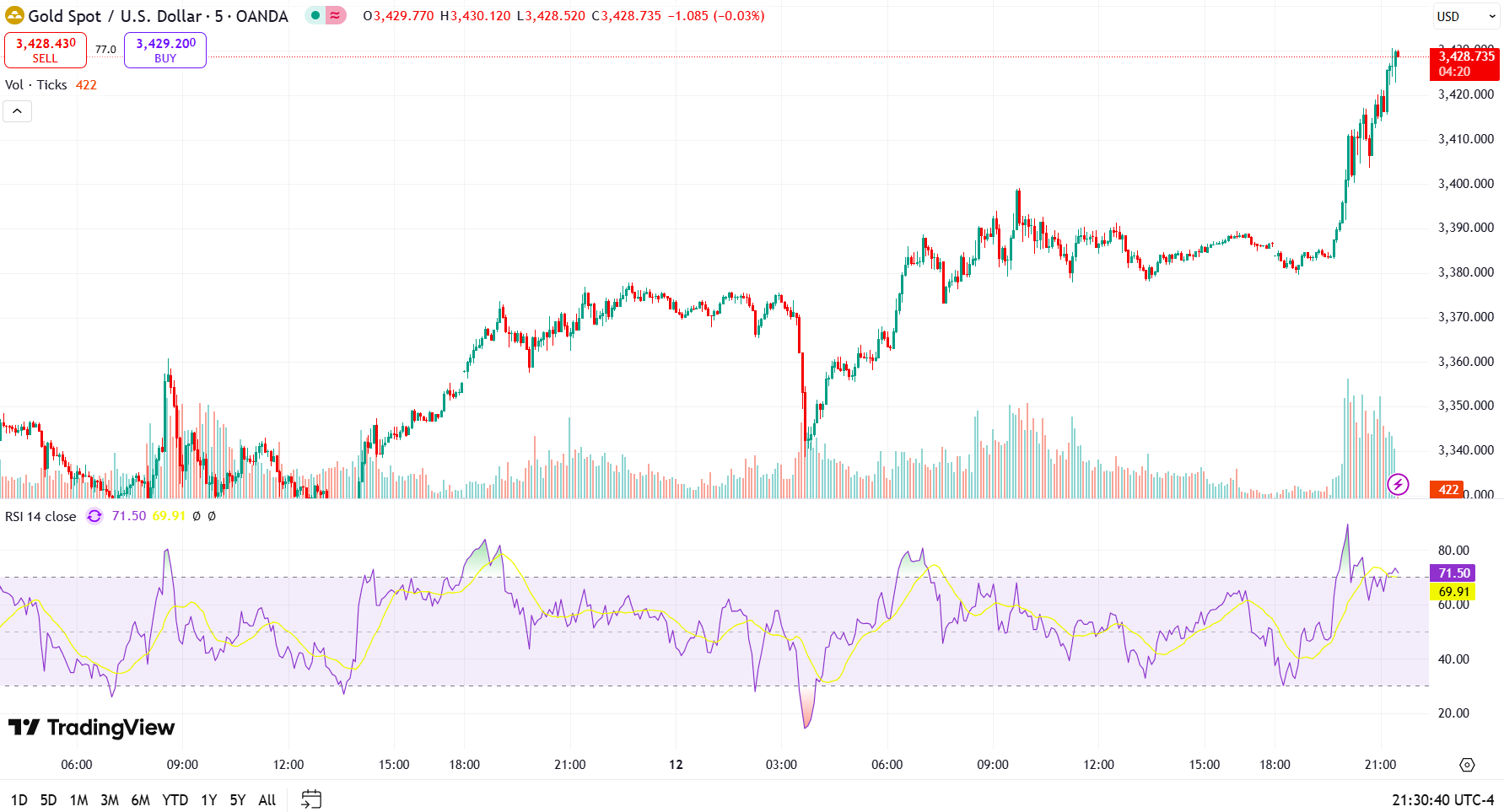Bitcoin prices fell late Thursday after Israel launched an airstrike on Iran, shaking global financial markets and triggering a sell-off in risk assets.

Three things you need to know about your assets:
Bitcoin fell 5% to $102,900 in early trading on Friday after Israel launched airstrikes near Tehran and Tabriz.
The escalation of tensions in the Middle East has driven safe-haven flows into gold, with spot gold soaring to $3,429 on the flight to safety.
Oil and stock futures fell as U.S. officials said they were monitoring the situation closely.

Israeli airstrikes on Iranian military targets heightened tensions in the Middle East, leading to a broad sell-off in risk assets, with Bitcoin prices falling more than 5% on Friday morning. The world's largest cryptocurrency fell from a 24-hour high of $108,500 to $102,900, according to TradingView data.
Israeli officials confirmed that the airstrikes targeted Iranian military facilities near Tehran and Tabriz, and called the move a "preemptive" action against a "growing threat." Israeli Prime Minister Benjamin Netanyahu said at a press conference on Thursday that Iran's nuclear ambitions were a "clear and present threat" and that the preemptive action would "last for days until the threat is eliminated."
Iran has not yet made an official response, but its state media reported that explosions occurred in the affected areas and caused air traffic to be disrupted. Earlier, Israeli defense officials held a meeting with senior US defense officials. Washington did not make a clear comment on the airstrike, only saying that it was closely monitoring developments.
Ryan McMillin, chief investment officer at crypto fund manager Merkle Tree Capital, told Decrypt: "The latest escalation in tensions between Israel and Iran is hitting risk assets and oil markets, but we have seen this before." He added: "A similar incident in April 2024 triggered a weekend sell-off in crypto markets, but the market quickly rebounded after the situation eased. These moments are often good buying opportunities."
Jamie Coutts, chief crypto analyst at Real Vision, agreed with this, noting that Bitcoin is still a risk-on asset in the eyes of short-term traders, but the long-term allocation of institutional investors is gradually dominating its trend. He said: "This explains why Bitcoin will fluctuate with risky assets in the short term, but will outperform gold in the long run."

Meanwhile, spot gold surged to $3,429 on safe-haven demand, while U.S. futures fell as investors worried about the risk of a wider regional conflict.







